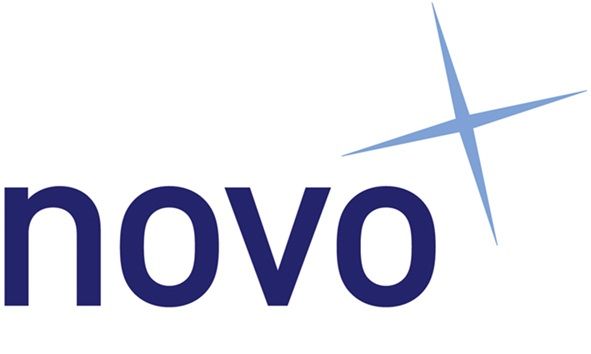HR Responds: Does DEI Need To Be Reset?

Fanshawe called for professional HR and business networks to “come to the rescue of practical and effective EDI”
“Work on diversity needs a reset,” wrote diversity consultant Simon Fanshawe, in the Sunday Times. Do HR leaders agree?
Fanshawe’s Sunday Times article flagged up a report he has jointly published with social researcher Matilda Gosling, after conducting interviews with 45 HR leaders in the UK. The report claimed that diversity, equity and inclusion (DEI) has become detached from business objectives.
The report suggested that DEI initiatives too-often values identity over genuine diversity, and stated that “activist staff [are] making demands of organisations that they actually want to make of the world”. This forced organisations to “choose a side” over issues such as Israel and Palestine and “rows over sex and gender”, according to the report’s authors.
Centring individuals’ “so-called lived experiences”, the report stated, embeds a dominant ideology in organisations. The report referred to staff networks as “grumble hubs” for employee activists. It argued that when networks “focus on interests of particular groups, they often reinforce divisions”.
Dr Mary-Clare Race, CEO of the DEI consultancy Talking Talent, agreed that DEI needs to be rethought.
“At Talking Talent we believe that many well-intentioned DEI efforts have gone awry in recent years. There is a need for a reset,” she told HR magazine.
“Although DEI initiatives are essential in addressing systemic inequities, they have not always helped us reconnect on a human level.
“In some cases, they have reinforced divisions between groups, created a sense of ‘otherness’ for individuals from underrepresented groups, and generated resistance or resentment from those who feel excluded from or pressured by DEI efforts.”
Race added that employers should use DEI initiatives to bring people together.
She continued: “The goal of DEI efforts should be about helping the business meet its objectives and to create workplaces where people can feel a sense of belonging, where they can thrive and where they can achieve their full potential. The business imperative and the human imperative go hand in hand.”
Fanshawe, who co-founded LGBTQ+ charity Stonewall but has since publicly broken away from the organisation, also noted that external organisations can impose their approach to DEI. The report pointed to Stonewall as an organisation that some interviewees named as “hard to divorce themselves from”.
“Leaders fear both saying and doing the wrong thing,” the report stated, quoting a leader as saying: “‘If I pull out [of Stonewall], it will cause so much angst that it would probably be the wrong thing to do.”
Leaders should be held responsible for the success of DEI, commented Aisling MacNamara, director of learning, enablement and inclusion at learning software provider LearnUpon.
Speaking to HR magazine, she said: “Effective DEI all starts with senior leadership. They set the tone and culture for the rest of the company. If the founders are passionate about DEI, this will have a real impact.
“Organisations should encourage DEI alignment across the different areas of the business. If activity is done in isolation, you will struggle to make any real impact or lasting change.”
The report encouraged organisations to ensure leadership accountability around DEI. It laid out seven recommendations to help organisations to reset DEI, which included linking DEI to an organisation’s activities and goals, making better use of data and evidence, and checking the quality of training.
It noted that employers should “ensure inclusion is not exclusion”, and avoid promoting the idea of people bringing their whole selves to work.
“Reasonableness sometimes relates to the number of times aggravating language has been used or an aggravating behaviour has been enacted,” the report stated. “One-off instances (with obvious exceptions, such as groping) may be less problematic. Ground rules may be helpful here.”
The report also criticised what it refers to as a ‘no debate culture’ and encouraged employers to: create a culture of productive disagreement that “offer[s] alternative perspectives on organisational challenges and that counter groupthink”; move towards a more constructive model of staff networks; and find a common purpose.
For David D’Souza, director of profession at the CIPD, it’s not always possible to leave external pressures outside of work.
“Discussions with HR and business leaders show consensus that the business imperative for DEI needs to be inclusive of moral, ethical, social and legal drivers,” he told HR magazine.
“That isn’t an easy task. Issues around cultural or societal issues clearly need to be sensitively managed but should not prevent organisations from finding ways to be more inclusive in their processes for attracting, selecting, rewarding and progressing people, in support of their objectives.”
MacNamara suggested that employers focus on creating an inclusive culture.
“An authentic, successful DEI strategy requires an understanding of the culture and setup of the company,” she argued. “Inclusion and belonging councils made up of employees from all levels, areas and locations of the business can help inform activity. This helps ensure that DEI approaches aren’t tick-box exercises.
“These initiatives should be supplemented with ongoing DEI training across the whole organisation. By focusing on storytelling, organisations can help create a vulnerable space where employees can share experiences, and foster a culture of inclusion and belonging. This will help ensure DEI efforts are both meaningful and impactful.”
In his Sunday Times article, Fanshawe called on the CIPD, CBI, Ofcom and the Institute of Directors to “open up an urgent space for this debate”, and to “come to the rescue of practical and effective EDI”.
D’Souza commented that the CIPD had worked on creating resources for employers to deal with conflict around DEI.
He added: “Our recent focus on conflict management pulled our current resources, including reports, guidance and learning opportunities, into one place.
“In parallel, we’ve been working on creating materials to support practitioners who want to ensure their activity is evidence-based, principle-led and outcomes-driven in this space.
“That work will come out over the next few months, and will reflect a range of data, member feedback and roundtables.”
Fanshawe conducted interviews with 45 business leaders in the UK for his report, ‘Flying flags and ticking boxes: What went wrong with EDI and how leaders can fix it’.
Originally published on HR Magazine, https://www.hrmagazine.co.uk/content/news/hr-responds-does-dei-need-to-be-reset












